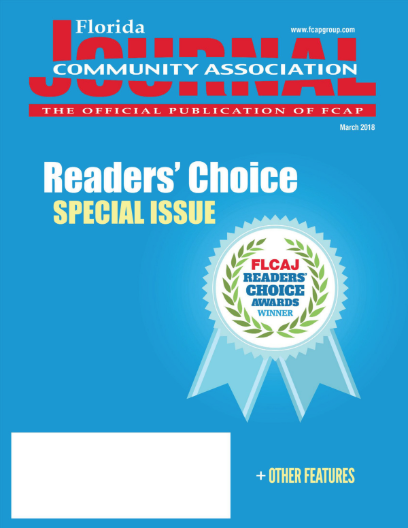What are the best practices for a community to be prepared and protected?
It is officially spring break season in Florida, and people from across the country are packing their bags for the sunshine state. While they prepare for their trips, Florida residents are getting ready for the tourism influx. That means extra guests, wanted and sometimes unwanted, visiting communities. Still, spring break season does not have to be a time for stress. Instead, communities and residents can implement simple security methods to keep homes and amenities safe.
To start, one of the easiest ways to help deter crime or trespassers at a community, is to advertise the security already in place. Are video surveillance systems used at the community entrance, pool, or other amenities? Have visible signs at these locations to let new visitors or trespassers know that the area is monitored. Does your individual home have an alarm system? Make sure a sign is noticeable on your property for potential criminals to see.

Homeowners and community officials should also check to see that outdoor lighting is functioning properly around the property. Community amenity areas should be well lit at night for onlookers to easily see if suspicious activity is occurring. Homeowners can do the same for their yards, allowing neighbors to notice anything out of the ordinary. If you are planning a spring break trip for yourself, have some indoor lights set on a timer, as well.
Communities can also deter trespassers by using access control security throughout the community. Access control utilizes unique credentials that allow a community to determine who is allowed into an area and when. The database can also be managed by a security company to easily disable individual credentials when necessary, as well as pull reports to see who entered an amenity and at what time. Additionally, access control is an initial deterrent for unwelcome visitors at community facilities.
If access control does not stop trespassers from entering a closed area, amenity areas can be monitored from afar with specialized video surveillance services. Sometimes called active video surveillance, this system uses video analytics to proactively monitor a designated area. This advanced technology can differentiate between the motion of rain or branches, and a physical person entering a closed area. When a person has entered a closed area monitored by active video surveillance, a signal can be sent to a remote security guard. Voice down capabilities allow the virtual guard to speak with the trespasser. If a trespasser refuses to leave, the guard can notify local law enforcement of the verified alarm.
When and if active video surveillance cannot be installed at amenities, passive video surveillance is the other type of camera system that can be used for deterring crime and accessing evidence when incidents occur. Before spring breakers arrive, check to make sure that every camera is working properly and viewing the correct area. Some security service providers will “ping” the cameras regularly to make sure they are recording properly, as well as routinely check each camera’s field of vision to confirm that the cameras have not moved and nothing is obstructing the lenses.
Passive video surveillance systems can also be used at community entrance areas. If a community is gated, these cameras can capture overall video of events occurring at the entrance. Specialized cameras can also capture the license plate tag of each vehicle attempting to enter through the gate. If gate damage occurs, service providers can assist in pulling the video of the incident and vehicle owner information to help recoup damage costs. Non-gated communities can still use passive video surveillance at entrance points to capture the same information in case of an incident within the community.
During this season, verification of visitors at a gated community entrance is critical to a neighborhood’s safety. When possible, it is beneficial to allow residents to manage their own list of approved guests. This can be done through a secure web portal that is typically provided by a community security specialist. With a web portal, homeowners have access to update their guest lists as often as needed and view visitor history reports. An accurate list of approved and denied guests, decreases the risk of unwanted visitors entering the community.
When implemented and used correctly, these security practices can help a community through the spring break season and beyond. Preparation and simple security checks of these methods and more can enhance a security plan to ensure that is works when a community needs it most. It is also beneficial to speak with your security provider about additional techniques or specific concerns for any time of the year.
If you have security questions or concerns, please email [email protected].
You can read this article in it’s original source – FLCAJ – March 2018
